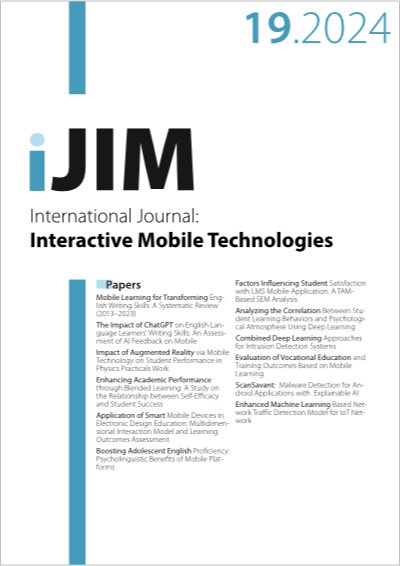Enhancing Academic Performance through Blended Learning: A Study on the Relationship between Self-Efficacy and Student Success
DOI:
https://doi.org/10.3991/ijim.v18i19.49835Keywords:
Generalized self-efficacy, academic achievement, blended learning, flipped classroomsAbstract
This study compares the efficacy of traditional learning to blended learning, which combines in-person instruction with online learning, in terms of academic performance and selfefficacy. The two main goals of the study are to determine whether there are any significant differences in post-general self-efficacy (GSE) scores between the experimental group (EXP. G.), which participated in blended learning, and the control group (CON. G.), which only received traditional instruction, and to investigate the connection between self-efficacy scores and grade point average (GPA). The study measured self-efficacy with a pre- and post-GSE scale, evaluated academic performance using a GPA analysis, and used a quasi-experimental design with non-equivalent comparison groups. The findings showed that, in comparison to traditional learning, blended learning significantly increased students’ self-efficacy. Additionally, a positive correlation between self-efficacy levels and GPA was found, suggesting that greater self-assurance was linked to better academic performance. These results offer compelling proof of how blended learning can improve academic outcomes and foster self-efficacy. Because of its potential to enhance student learning experiences and promote academic achievement, blended learning is strongly advocated in educational settings, according to the study. Blended learning provides exceptional opportunities to engage and motivate students, ultimately resulting in improved learning outcomes. It does this by fusing conventional faceto- face instruction with online educational strategies.
Downloads
Published
How to Cite
Issue
Section
License
Copyright (c) 2024 mohammad rayyan, Nimer Abusalim, Sarah Alshanmy, Ferial Abu Awwad, Sharif Alghazo

This work is licensed under a Creative Commons Attribution 4.0 International License.


